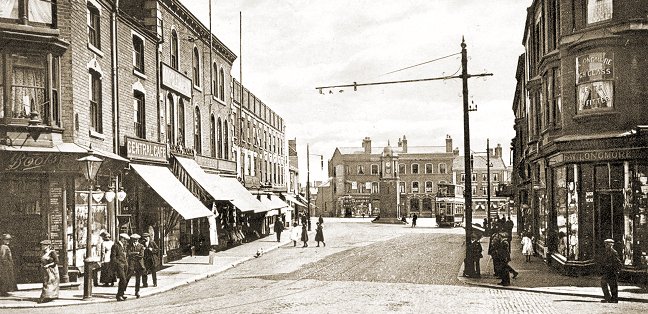|
Municipal Housing Schemes in Wednesbury

Wednesbury Market Place. From an
old postcard.
Wednesbury and most of the towns in
the Black Country suffered from acute housing shortages,
and a lack of quality housing. In the 18th and 19th
centuries the local population increased
dramatically as people flocked to the area to take
advantage of the many jobs on offer in the new
industries that came to dominate the landscape. The original
housing was totally inadequate and could not cope with
the inevitable overcrowding, and unsanitary conditions
that followed.
Local authorities had to begin a
programme of house building in order to overcome the
acute shortage of adequate housing, something that the
private sector had failed to do. Many municipal estates
were built on derelict land that had to be reclaimed
after decades of mining left spoil heaps, mine
workings, flooded pits, subsidence, and marl holes. It
was an immense undertaking, and greatly changed the
local landscape.
This is the story of Wednesbury’s
council estates that were built before 1936. The
photographs are from a souvenir booklet produced to
celebrate the building of the town’s 2,000th municipal
house. It was kindly lent to me by Tony Highfield. |